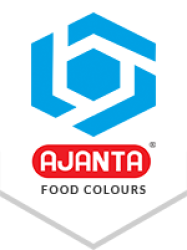Spain, officially the Kingdom of Spain, is one of the most dynamic countries in Europe, known for its strong economy, beautiful scenery, and manufacturing industries. Spain shares its land border with Portugal, France, Andorra, the United Kingdom (Gibraltar), and Morocco. It also has sea borders with Portugal, France, Morocco, Algeria, and Italy. The manufacturing sector of Spain plays a crucial role in its economic growth.
In the manufacturing of any product, various components play a crucial role. Some help in product manufacturing, while others help in improving the visual appeal of the product, such as colour. Colour makes the product appealing to consumers, attracting their attention and boosting product sales. Spanish manufacturers prepare colours, but they are not sufficient to fulfill all the colour-related demand of the country. They import colours from other countries to fulfill colour demand, which includes India, China, and the US.
To get this opportunity and make a profit, Spanish colour merchants, distributors, and traders import colours from other countries and sell them in Spain. They import colours at cost-effective sourcing and sell them at competitive market pricing in the Spanish market. Some sell the colours under the same brand name from the bought while others create their own branding and sell them under their brand name.
Spanish Industries Where Colours Play a Vital Role
In Spain, various manufacturing industries require a vibrant and appealing final look for their products that helps them to stand out in the market and boost sales. Here are some Spanish manufacturing industries where colour plays a vital role.
Food and Beverages Industry
In the Spanish food industry, colour plays a crucial role. Colour makes food products such as sauces, ready meals, snacks, and beverages appealing to consumers, which attracts their attention and boosts sales. However, Spanish food manufacturers often face some challenges during colour purchase. Spanish food manufacturers want high-quality colour for their products that does not fade or change on the products during manufacturing and storage. Spanish food manufacturers overcome their challenges by using high-quality synthetic food colours in their products. Synthetic food colours do not fade or change in various conditions and maintain the visual appeal of the product. In Spain, most of the manufacturing industries are located in Barcelona, Madrid, Zaragoza, Málaga, and Logroño (La Rioja). According to Statista, the revenue of the Spanish food market is projected to reach about $7.15 billion in 2026, with an expected annual growth (CAGR) of 10.83% towards $11.96 billion by 2030.
Cosmetics Industry
Colour is a crucial component of the cosmetics industry. Colour makes cosmetic products such as lipsticks, mascaras, blushers, lip balms, creams, gels, and oral care items that are appealing and attract the attention of customers and boost sales. However, Spanish cosmetic manufacturers often face challenges in selecting the right colour for their products. They overcome their challenges by using high-quality cosmetic pigments and dyes that are especially designed for cosmetics and personal care products. Synthetic food colours come in different colour shades to allow manufacturers to make their products different from competitors and establish brand recognition in the market. Most of the cosmetics manufacturing industries of Spain are located near its big cities like Barcelona (Catalonia), Madrid, the Valencian Community (Valencia & Alicante), Zaragoza (Aragon), and Murcia. According to Statista, the revenue of the cosmetic market of Spain is projected to reach US$389.77 million in 2026.
Pharmaceutical Industry
In the Spanish pharmaceutical manufacturing industry, colour plays a crucial role. Colour makes medicines such as tablets, capsules, syrups, injectable and health supplements appealing, which helps in the recognition of the medicine. These visually appealing medicines reduce the chances of taking the wrong medicine and create a brand image in the market. However, Spanish pharma manufacturers often face some challenges in selecting the right colour for their products. They want colours that do not spoil or bleed on medicines for a long time. Spanish pharma manufacturers can overcome their challenges by using high-quality synthetic food-grade colour in their products. Synthetic food-grade colours do not fade, bleed, or spoil on medicines, maintaining their stability during manufacturing and storage. Synthetic food-grade colours are safe and approved for use in medicines by various global authorities. Most of the pharmaceutical manufacturing industry of Spain is located in Madrid, Barcelona, Alcobendas (Madrid Region), Sant Cugat del Vallès (Barcelona Region), and Valencia. According to Statista, the revenue of the pharmaceutical market of Spain is expected to grow from $33.85 billion in 2026 to $60.53 billion by 2033, with a compound annual growth rate (CAGR) of 7.53% from 2026 to 2033.
Chocolate Industry
Colour plays a vital role in the chocolate manufacturing industry of Spain. Colour makes the chocolate products attractive for consumers, especially women and children who are the prime audience of chocolates. However, chocolate manufacturers in Spain often face some challenges in selecting the right colour for their products. They want high-quality chocolate colours that provide an attractive tone to their chocolate and do not fade or change. Spanish chocolate manufacturers can overcome their challenges by using high-quality synthetic food colours in their chocolate products. Synthetic food colours offer a visually appealing final look to chocolate that does not fade or change in various conditions, such as pH, heat, or direct sunlight contact. These coloursare approved by governmental bodies of many countriies that shows their safety for human consumption. In Spain, most of the chocolate manufacturing industries are located near Madrid, Zaragoza, Villajoyosa (Alicante), Palencia (Dueñas), and the Valencia Region (Mislata / Valencia). According to Statista, the revenue of the Spanish chocolate market is expected to reach $4.54 billion in 2026, and is expected to grow at a CAGR of 3.788% from 2026 to 2033.
Animal Feed Industry
Colour also plays a crucial role in the Spanish animal feed manufacturing industry. It makes the feed appealing for animals, encouraging them to eat properly and stay healthy. However, manufacturers often face challenges in selecting the right animal feed colour for their products. Spanish pet food manufacturers can overcome their challenges by using high-quality synthetic pet food colour in their products. Synthetic animal feed colours come in various shades, allowing manufacturers to create different coloured product that improves brand recognition of their product in the market. These colours come in high-quality that do not fade or change during the manufacturing or storage of feed. Most of the pet food manufacturing industries of Spain are located near Barcelona (Catalonia), Arévalo / Ávila (Castile and León), A Pobra do Caramiñal / A Coruña (Galicia), Bellpuig (Lleida / Catalonia), and Llinars del Vallès (Barcelona region, Catalonia). According to Statista, the revenue of the pet food market of Spain is expected to reach $3.05 billion by the end of 2026, and grow with a Compound Annual Growth Rate (CAGR) of 5.63% from 2026 to 2031.
Cultural Preferences of Colours in the Spanish Market
Spanish people often choose colours that reflect freshness, quality, and authenticity. In the food products, they like red, orange, and yellow tones. In health-oriented and dairy products, warm and natural shades such as cream, vanilla, soft kraft brown, soft green shades, sage green, and mint are liked by Spanish people. Spanish people like rich and elegant colours that include white, navy blue, brown, emerald green, charcoal, deep red, gold, and rose gold in confectionery and dessert products. Manufacturers who sell or export their products to the Spanish market know these cultural favourites very well and prepare their products accordingly to increase sales.
Regulatory Guidelines on Colours in the Spanish Market
Colours, whether they are synthetic or natural, must be approved by the government body of the country that checks the quality and safety of colours in human-consumption products. The Spanish Agency for Food Safety and Nutrition (AESAN) is responsible for checking colour quality and safety on food products, while the Spanish Agency of Medicines and Medical Devices (AEMPS) is responsible for cosmetics and pharmaceutical products. These authorities conduct inspections, sample testing, and enforcement actions from time to time to ensure the quality of colour in products.
Starting a new business in the Spanish market is also a challenging task. Startups have to compete with the brands that already sell their products in the market. Startups have to differentiate their products first and maintain their quality to get attention from customers. In this, they can use synthetic food and food-grade colours in their products, as their colours come in various shades, allowing startups to create different coloured products, which improves brand recognition in the market. Synthetic food colours come in premium quality that do not fade or change on products and maintain their visual appearance for a long period of time. Synthetic food colours are also an affordable option compared to other colourant alternatives, allowing startups to sell their product at a competitive price.
If you are a manufacturer or a startup business, looking for high-quality colours that are approved to use in the Spanish market, you can go with Ajanta Food Colours, a leading synthetic food colour manufacturer in India with over 75 years of legacy. Ajanta Food Colours offers a wide range of food, cosmetics, and pharmaceutical colours and exports them to Spain and other European countries. Ajanta uses the latest machinery and technologies in all its manufacturing plants, which help the company to stand out in the competitive synthetic food colours manufacturing industry around the world.
Ajanta Food Colours knows every client has different requirements, which is why it offers all sizes of packaging with different materials that allow manufacturers to purchase colours according to their requirements. Ajanta also offers colour customization options to its clients that help them to achieve the desired shade of colour, allowing them to create unique coloured products that improve brand recognition in the market.
For the quality and safety of their colourants, we at Ajanta Food Colours received various awards and certificates from India and other countries that show our expertise in the synthetic food colours manufacturing industry. Some of the awards and certificates received by Ajanta Food Colours include The Arch of Europe Award, the Bureau of Indian Standards (BIS) Award, certifications from the Food Safety and Standards Authority of India (FSSAI), the US Food and Drug Administration (US FDA), as well as Halal, Alcumus ISOQAR, Star-K Kosher, Food Safety System 22000 (FSSC 22000), and ISOQAR certifications, among others.
To know more about Ajanta Food Colours, its range of colours, or for any other information, please contact us today!





_1768903358.jpg)